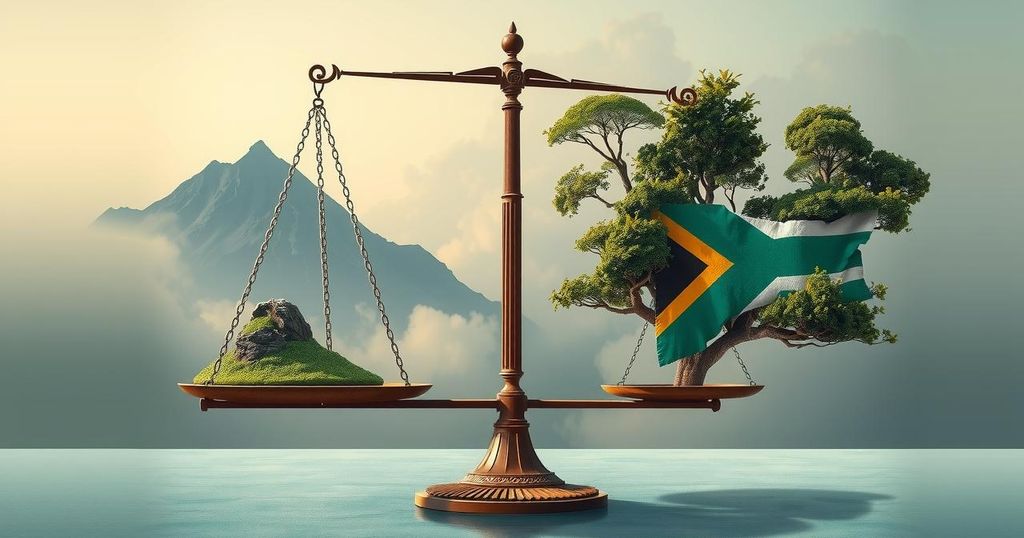Tensions escalated between Rwanda and South Africa when President Kagame condemned accusations from President Ramaphosa regarding Rwandan support for M23 rebels in the DRC. Following the deaths of South African peacekeepers, diplomatic exchanges grew heated, with both nations trading accusations of complicity in the violence. This conflict’s background involves historical issues dating back to the Rwandan genocide and ongoing resource disputes in eastern Congo.
Rwandan President Paul Kagame recently criticized South African President Cyril Ramaphosa following allegations that Rwanda is supporting the M23 rebels in the Democratic Republic of Congo (DRC). Ramaphosa attributed the escalating crisis in eastern DRC to Rwandan involvement, leading Kagame to accuse him of dishonesty and warn of potential confrontations. South African troops are actively engaged in DRC as part of UN peacekeeping forces and a separate deployment by the Southern African Development Community (SADC).
The situation intensified after 13 South African soldiers died amid increased fighting, attributed to the M23 militia, which is widely believed to receive Rwandan support. In response to Ramaphosa’s comments regarding the M23 and the casualties, South Africa’s Minister of Defense Angie Motshekga warned of repercussions if the violence continued.
Kagame vehemently rejected Ramaphosa’s assertions in a social media statement, asserting that the Rwandan Defense Force is not a militia and expressing readiness to address South African threats appropriately. Kagame further questioned whether the South African soldiers were truly peacekeepers, stating that their operations in Congo were offensive rather than peacekeeping missions.
South African Foreign Minister Ronald Lamola has publicly accused Rwanda of backing the M23 rebels, referencing reports by UN experts. Lamola participated in a recent African Union meeting to advocate for a ceasefire and urge all external support for the M23 to cease immediately.
The eastern Congo region, which borders Rwanda, has faced enduring conflict for decades, largely stemming from the Rwandan genocide of 1994. The Rwandan government claims the refugee groups from that period pose a security risk, while the Congolese authorities allege that Rwanda has actively pursued the region’s rich mineral resources.
The recent diplomatic tensions between Rwanda and South Africa have arisen amidst an ongoing crisis in the eastern Democratic Republic of Congo, where the M23 rebel group has intensified its military activities. This situation has seen South African troops deployed for peacekeeping, resulting in fatalities amid rising violence. Both governments accuse each other of involvement in the ongoing instability, highlighting historical grievances that trace back to the Rwandan genocide and its aftermath. This regional conflict is rooted in complex historical, political, and economic dimensions, especially concerning the vast mineral wealth of eastern Congo.
The ongoing exchange of accusations between Rwandan and South African leadership underscores the complexities of regional security in eastern DRC. With both nations firmly blaming one another for supporting the M23 rebels, the risk of diplomatic escalations remains heightened. As violence continues to affect local populations, the broader implications for peacekeeping efforts and regional stability must be carefully considered.
Original Source: www.voanews.com






